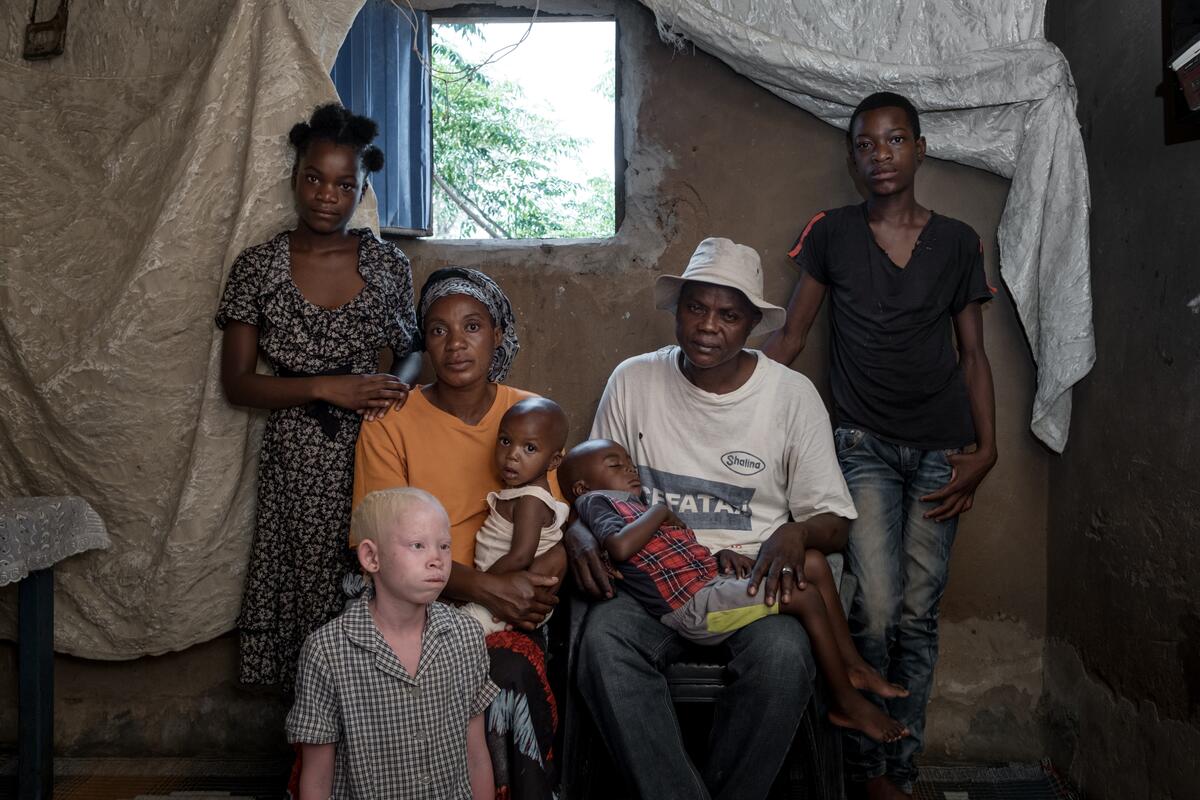Wheat flour shortage affects Afghan refugees in Balochistan
Wheat flour shortage affects Afghan refugees in Balochistan

MUHAMMAD KHAIL, Pakistan, May 19 (UNHCR) - Images of people queuing in front of utility stores late last year to buy wheat flour was still fresh in everyone's memories when another food crisis emerged recently in Pakistan. The shortage of food and the skyrocketing prices have multiplied problems of the already poverty-stricken Afghan refugees and needy locals living in south-western Pakistan.
Muhammad Khail is one of the poorest Afghan refugee villages in Balochistan province. It is just 116 kilometres from the provincial capital of Quetta, but takes three hours by car to reach due to poor road conditions. The majority of the inhabitants here used to be nomads, with limited skills to meet their daily needs. The current food shortage has affected Muhammad Khail more than any other village due to its isolated location from urban settlements.
"One can live without tea, meat, rice and vegetables, but how can one live without wheat flour? This is the only luxury we have, which now seems out of our reach," said Haji Gulab, a 50-year-old Afghan in Muhammad Khail.
The flour shortage that emerged in Pakistan late last year has resulted in food price inflation. Reports indicate that wheat prices have gone up by 130 percent in the first quarter of this year in Pakistan, due partly to rising global fuel prices and increased demand for food commodities.
"A bag of 20-kilogramme flour is being sold at 420 rupees (US$6.70) to 560 rupees, whereas the government fixed rate was 380 rupees," said an exasperated Jan Muhammad, 55, in Muhammad Khail. "Such a small amount of flour is hardly enough for three to four days; what would we eat the rest of month?"
Earlier this year in February, the government of Pakistan deployed one of the border security forces, the Frontier Corps (FC), within cities to halt flour smuggling to Afghanistan and to ensure the fair and smooth distribution of flour to consumers.
"The FC was providing flour to those who produced their Pakistani National Identity Cards, which we don't have. We are very grateful to our Pakistani brothers, who purchased the flour and sold it to us," said an Afghan working as a daily wage labourer. "But they cannot help us anymore, because the flour is so scarce that they hardly feed their families."
Muhammad Khail is home to some 6,000 registered Afghans. The majority of the men are daily wage labourers or run small grocery shops. Their monthly average income is approximately 3,500 to 4,000 Pakistan rupees (US$56-US$64).
"We are unable to go to the cities [to buy flour] due to the increase in transport fares; they say that the increase in the fuel prices has resulted in a price hike. Rice, beans, meat, edible oil, milk and flour, the price of each item has increased so that now one can buy them in dreams only," lamented Haji Gulab.
"The wheat flour situation at Muhammad Khail may be an extreme example because of its isolated location," noted John Solecki, head of the UNHCR office in the provincial capital, Quetta. "However, the situation facing the residents in Muhammad Khail is indicative of some of the challenges faced by Afghans [and locals] elsewhere in Balochistan."

The UN refugee agency is working with the local authorities to alleviate the wheat flour shortage facing Afghans in Balochistan's most remote refugee villages. The Commissionerate for Afghan Refugees is hopeful that it will soon be able to bring flour to Muhammad Khail and Malgagai refugee villages.
Until then, the daily struggle to survive continues. "For our survival we are now forced to make flour out of the substandard wheat and grain that we once fed our animals, because we can't afford to buy expensive flour," said Haji Gulab. "I can go hungry for days, but I can't see my children dying of hunger."
By Duniya Aslam Khan in Muhammad Khail, Pakistan








